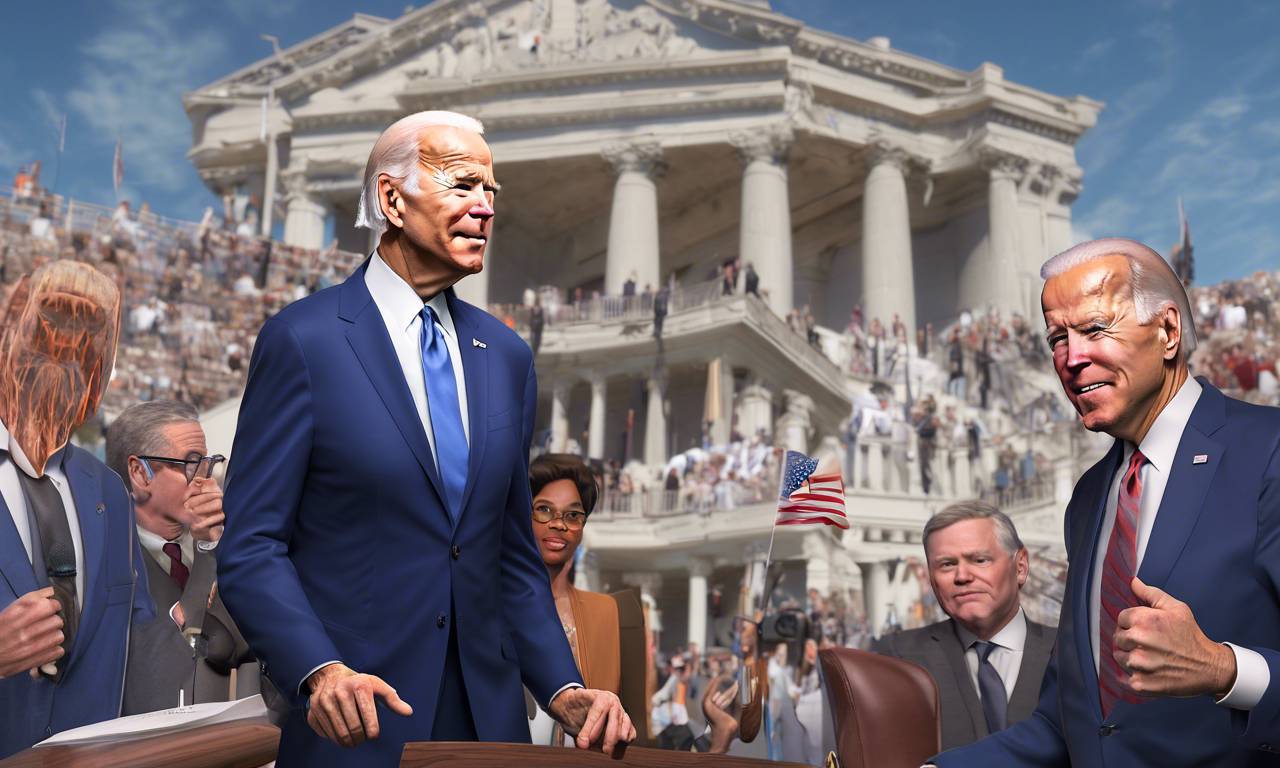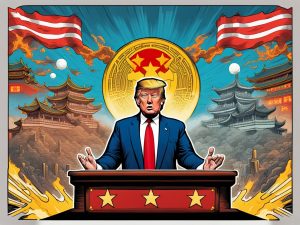The Nigerian Government’s Crackdown on Cryptocurrency
Nigeria’s fiat currency is facing a significant decline against major foreign currencies, and the government is blaming cryptocurrency for the situation. Binance, one of the leading cryptocurrency exchanges, recently faced controversy in Nigeria when it imposed a price cap on the USDT P2P exchange rate. The move was part of its compliance efforts but received backlash from the Nigerian crypto community. Although Binance quickly reversed the decision, it inadvertently worsened the situation as the government targeted cryptocurrency platforms and specifically focused on Binance.
Amidst this turmoil, Nigerian Binance users encountered difficulties accessing the exchange’s application. The Nigerian government instructed telecommunication service providers to block access to all cryptocurrency exchange platforms in an attempt to stabilize the depreciating currency. To reassure users, Binance sent emails emphasizing the security of funds and their commitment to maintaining dialogue with regulatory authorities.
The situation escalated further when calls for a complete ban on Binance within Nigeria emerged. The House of Representatives Committee on Financial Crimes is now looking to question Binance CEO Richard Teng for alleged terrorism financing and money laundering. Additionally, a presidential aide criticized Binance for setting exchange rates and called upon the Economic and Financial Crimes Commission (EFCC) to take action against Binance and other exchanges like KuCoin and Bybit.
Local Nigerian crypto platforms also reported being affected by the government’s restrictions. The Nigerian crypto community strongly opposed the ban, viewing it as an authoritarian response to the country’s challenges. However, the government remained steadfast in its decision to block Binance P2P trading, signaling a broader crackdown on cryptocurrency trading activities in Nigeria.
This crackdown raises concerns about its potential negative impact on innovation, investment, and financial inclusion in Nigeria. Many fear that the government’s regulatory overreach will drive cryptocurrency trading underground, depriving Nigerians of access to digital assets and stifling technological advancement in the financial sector.
Is Crypto a Threat to the Naira?
The Nigerian government’s harsh stance against cryptocurrency is not new. In February 2021, the Central Bank of Nigeria (CBN) issued a directive prohibiting banks and financial institutions from facilitating transactions involving cryptocurrencies. The ban was justified by concerns about money laundering, terrorism financing, and other illicit activities.
Despite the ban, Nigeria has remained a hotspot for cryptocurrency trading and adoption, with many traders resorting to VPNs. The country’s tech-savvy youth, disillusioned with traditional financial institutions, have flocked to crypto platforms attracted by their potential.
Recent developments suggest that the government is escalating its efforts to curb cryptocurrency use. Authorities have been clamping down on crypto exchanges, arresting individuals involved in crypto-related activities, and freezing bank accounts suspected of facilitating cryptocurrency transactions.
This crackdown coincides with a tumultuous period for the Nigerian economy, marked by persistent inflation, currency devaluation, and economic uncertainty. The value of the naira has been on a downward spiral against major global currencies like the U.S. dollar and Euro.
Corruption Persists
Observers argue that the government’s hostility towards cryptocurrency stems from its fear of losing control over the financial system. Cryptocurrencies operate on decentralized networks beyond the reach of any single authority, challenging the government’s ability to monitor and regulate financial transactions.
Some analysts believe that the government’s crackdown on crypto is a knee-jerk reaction to its inability to address underlying economic challenges. Critics blame the government for scapegoating cryptocurrencies as a convenient distraction from issues like corruption, inadequate infrastructure, and overreliance on oil revenue.
Nigerians have taken to the streets in peaceful protests in favor of crypto, viewing it as a lifeline in an economy plagued by corruption, inflation, lack of accountability by government officials, and currency instability. Despite the current gloom and uncertainty, crypto will continue to see adoption among the youth as it provides a means to preserve wealth, access global markets, and engage in financial transactions with greater privacy and autonomy.
In response to the crackdown, members of Nigeria’s crypto community are advocating for greater education and understanding of digital currencies among policymakers and the public. They believe that a more nuanced approach to regulation focusing on investor protection and market integrity could unlock the full potential of cryptocurrencies while mitigating associated risks.
Hot Take: The Nigerian Government’s Battle Against Cryptocurrency
The Nigerian government’s crackdown on cryptocurrency has created significant controversy and concern within the country. While the government blames cryptocurrency for the decline in the value of the naira, many view it as a convenient scapegoat for deeper economic challenges and corruption.
The ban on cryptocurrency transactions by the Central Bank of Nigeria has not deterred Nigerians from participating in the crypto market. Instead, they have found ways to continue trading using VPNs. This demonstrates the resilience and determination of Nigerians to embrace digital currencies despite regulatory obstacles.
The government’s crackdown raises questions about its impact on innovation, investment, and financial inclusion. By restricting access to cryptocurrency platforms, the government risks driving trading underground and depriving Nigerians of opportunities for financial growth and technological advancement.
Advocacy and education are crucial in promoting a better understanding of digital currencies among policymakers. A more nuanced regulatory approach that balances investor protection with market integrity can harness the full potential of cryptocurrencies while addressing concerns about illicit activities.





 By
By
 By
By
 By
By


 By
By